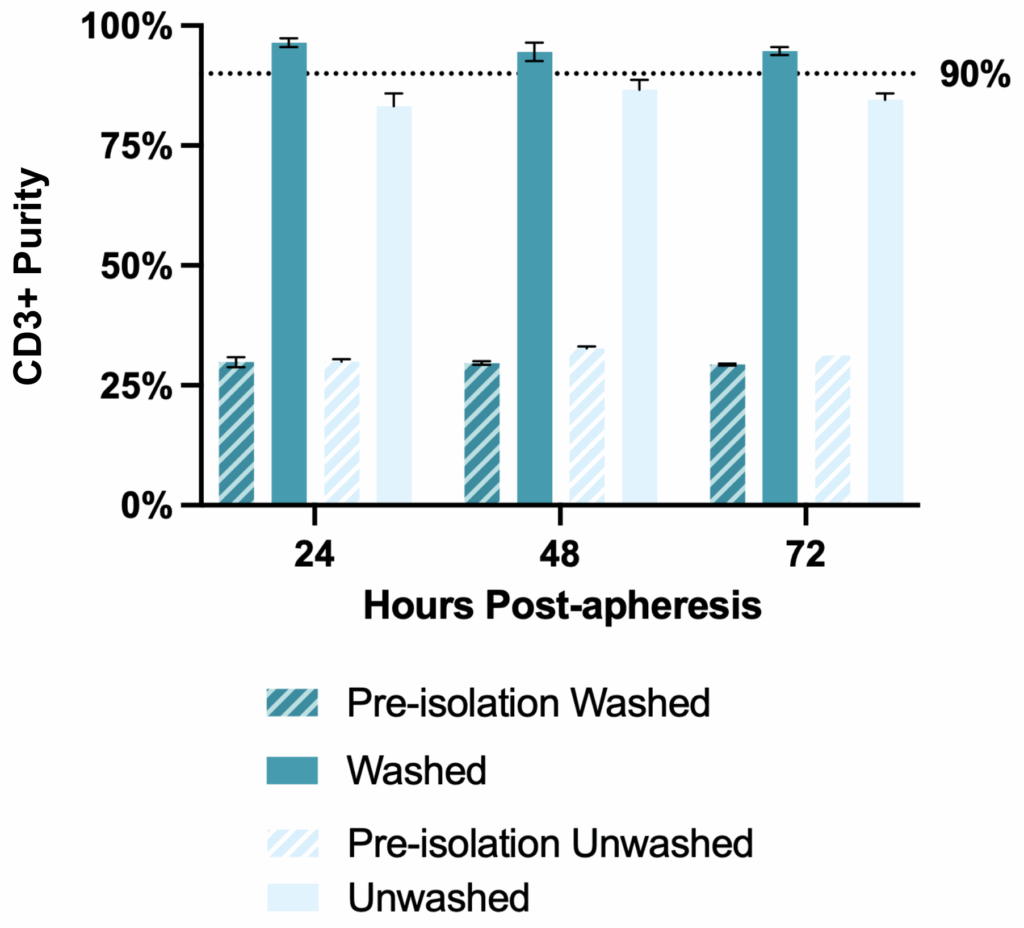Unmatched Flexibility: Manual T Cell Isolation with Akadeum’s Microbubble Kits
Updated on Jul 13, 2025 | Published on Jun 8, 2025 Share
Not every cell therapy lab can access high-throughput automation, but that shouldn’t mean sacrificing quality, consistency, or scalability. For researchers working with limited resources or those who need flexibility within their workflow, Akadeum Life Sciences offers a better way to isolate high-quality T cells.
With Akadeum’s microbubble kits, you can achieve high-purity, untouched T cell populations in under an hour without magnets or specialized equipment. The closed-system, in-bag workflow supports efficient cell separation anytime, anywhere, helping you preserve viability, reduce processing steps, and avoid costly sample loss.
Whether in a research hospital, an academic core facility, or a distributed manufacturing environment, Akadeum’s microbubble technology is designed to meet your needs. Learn more about how you can integrate our technology into your workflow with our expert support.

What Are Microbubbles?
Akadeum’s microbubble technology is a powerful alternative to magnetic bead-based cell separation. These buoyant, antibody-functionalized microbubbles are designed to selectively bind to unwanted cells in a sample, such as CD14+, CD19+, or other non-T cell populations.
Once bound, the microbubbles float these cells to the top of the vessel, allowing them to be gently removed while leaving the target T cells untouched at the bottom. The result is an untouched, purified cell population ready for downstream applications.
The workflow doesn’t require magnets, columns, or rare earth materials. The target cells remain label-free and unmanipulated. This method preserves native phenotype and function. This is critical for applications like CAR T cell therapy, where cell health and precision directly impact therapeutic success. Akadeum’s microbubble kits offer clean, scalable cell separation that is easy to perform and even easier to integrate.
Manual Processing, Made Simple
Akadeum’s Human T Cell Leukopak Isolation Kit brings cell separation into a new era of accessibility and efficiency—no instrumentation required. The kit enables in-bag processing directly within the apheresis collection bag, reducing the need for sample transfers, minimizing handling, and preserving cell quality.
Straightforward, 5-step Workflow
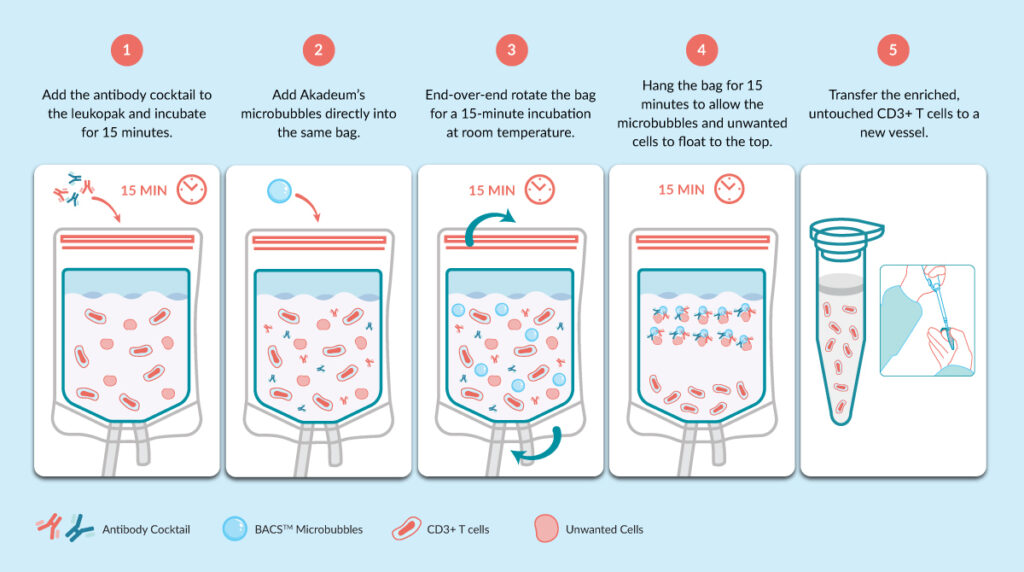
The process takes less than an hour and requires no upstream cell wash or platelet removal step, although users may choose to include one depending on protocol preferences. This flexibility allows teams to start from either fresh or unwashed material, enabling cell isolation at the point of collection or even hours later, without performance loss.
In settings where time, space, and instrumentation are limited, Akadeum’s in-bag workflow provides a reliable and reproducible path to high purity T cells using what’s already available in most labs.
Application Note: Performance Highlights
To validate this manual, closed-system workflow, Akadeum evaluated its microbubble kit using leukopak samples from two healthy donors at 24, 48, and 72 hours post-collection. Platelet-depleted (washed) and unwashed conditions were tested for real-world sample preparation and storage variability.
High T Cell Purity
Platelet-washed samples reached purities between 93.2% and 97.1%. Unwashed samples achieved 81.3% to 88.1% purity, even without preprocessing.
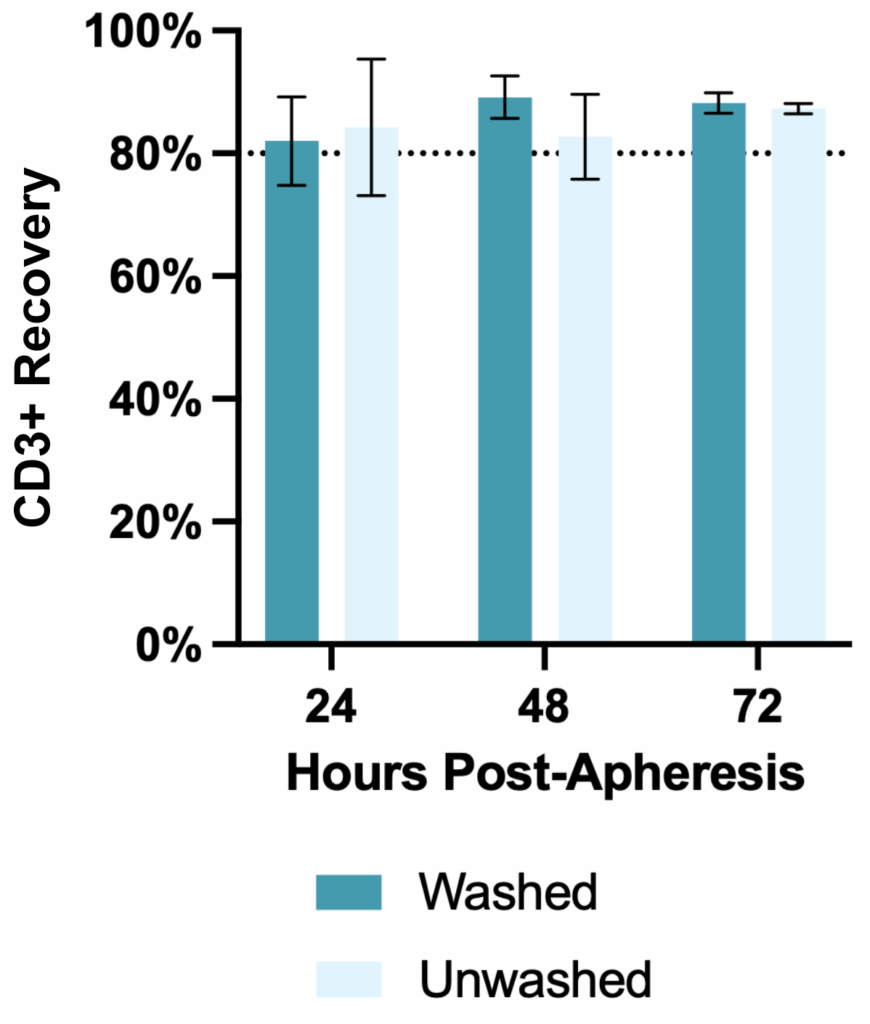
Strong Yield
CD3+ T cell recovery exceeded 80% across all conditions and timepoints.
Excellent Viability
Viability remained above 95% in all runs, a benefit of the gentleness of the microbubble method.
Preserved Phenotype Ratios
CD4/CD8 T cell ratios remained stable before and after an optional platelet wash.
Efficient Depletion of Unwanted Cells
CD19+ cells were reduced by >99%. CD14+ cells were depleted by ~95% (unwashed) and >99% (washed).
These metrics demonstrate the reliability and robustness of the Akadeum kit, even when used under variable conditions or delayed processing scenarios. Whether working with fresh material or samples processed up to three days post-apheresis, researchers can count on consistent, high-quality results.
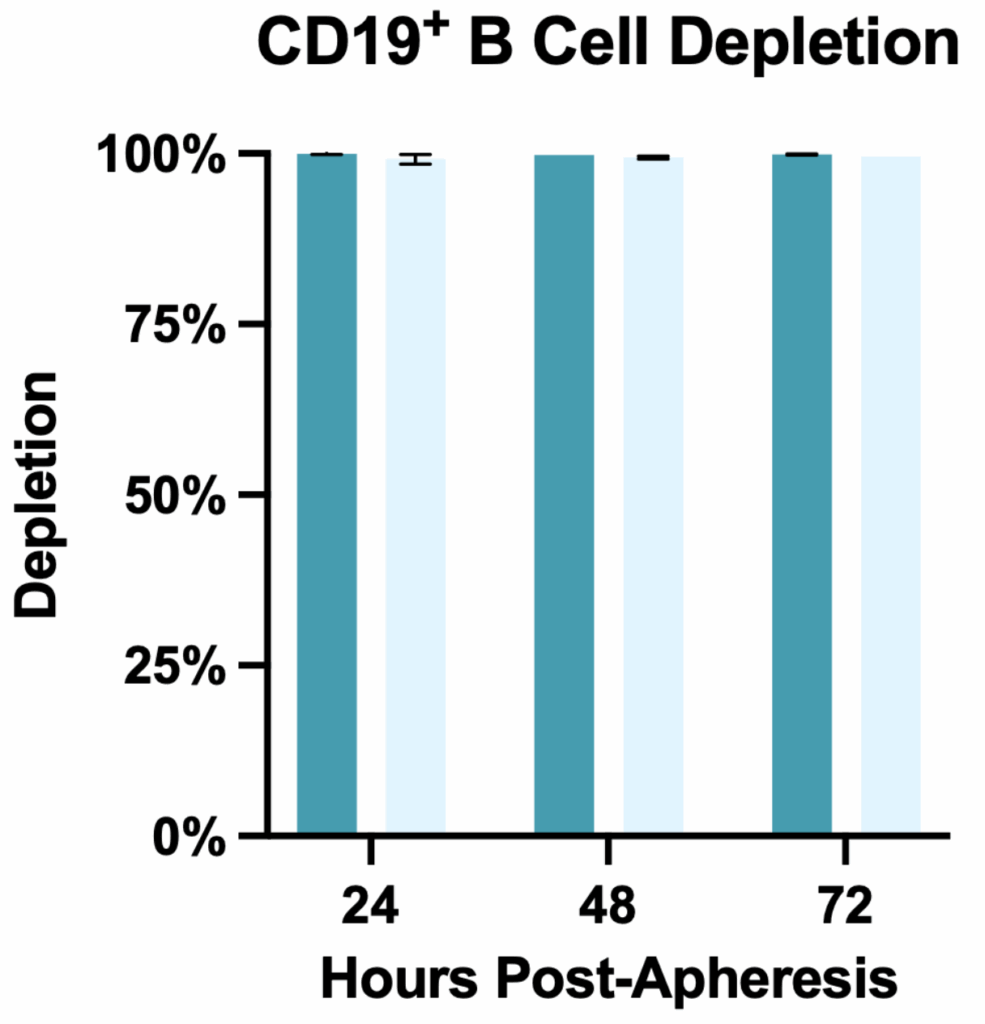
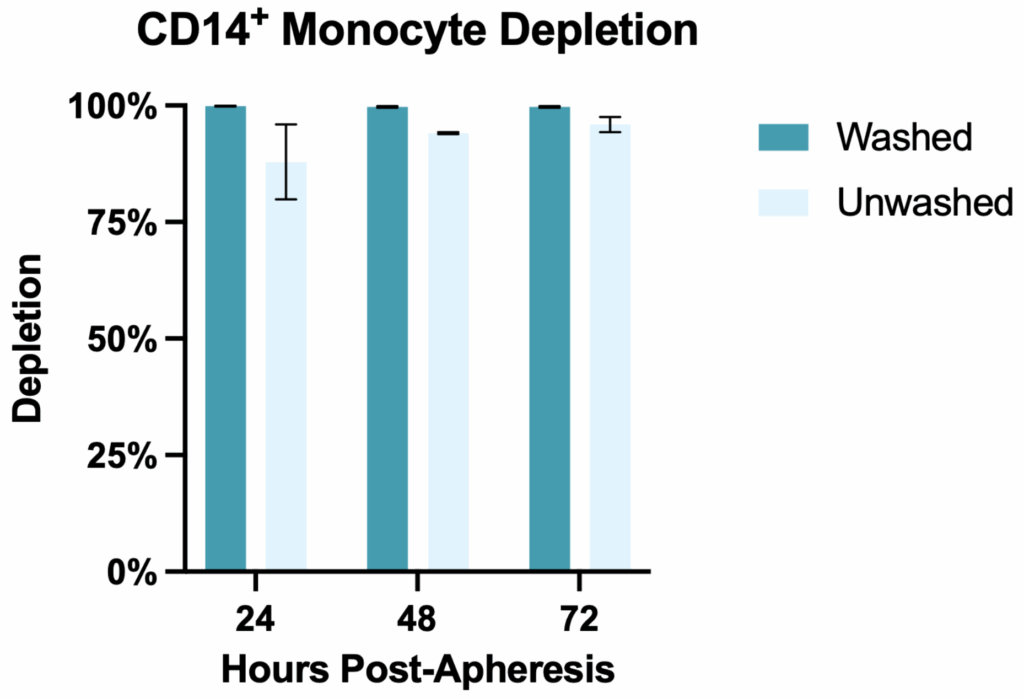
Use Anywhere, Process Anytime
For many labs, the barriers to high-quality T cell isolation are logistical, not scientific. Limited access to equipment, staffing constraints, or sample delays can make standard magnetic or column-based methods impractical. Akadeum’s microbubble technology eliminates those limitations.
This in-bag workflow can be executed anywhere, from academic research labs to point-of-care collection sites, without magnets or specialized instrumentation. The fully closed system minimizes contamination risk, protects sample integrity, and reduces handling errors.
Perhaps most importantly, the kit’s consistent performance—even up to 72 hours post-collection—adds critical flexibility. Researchers no longer have to rush processing or discard delayed samples. This unlocks new possibilities for decentralized clinical trials, mobile collection protocols, and hospital-based studies, where timing and resources vary.
Unlock Better Manual Processing with Akadeum’s Microbubble Kits
Akadeum’s Human T Cell Leukopak Isolation Kit brings automation-level quality to manual workflows. It’s fast, gentle, and remarkably easy to integrate, empowering researchers to achieve high-purity T cell isolation without the resource demands of traditional systems.
To explore how this kit performs across different timepoints and sample conditions, download the full application note, which includes protocol details and complete performance data.
Looking to simplify your workflow without compromising results? Visit our cell therapy product page to get started.



